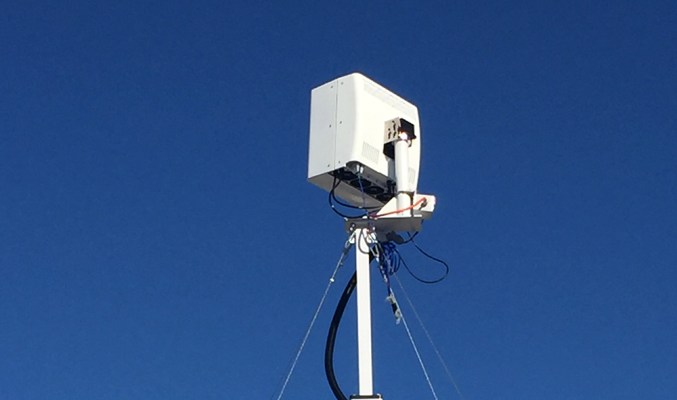Starry’s mostly been pretty quiet since coming out of stealth roughly this time two years ago. The Boston-based startup has been busy raising funds and running limited testing in its hometown. Starry Internet is still firmly in beta mode, mind, but later this month, it’s going to expand that testing to two new key markets, Los Angeles and Washington, DC.
Launched by Aereo founder Chet Kanojia, the service has drummed up some excitement around these parts for its claims of delivering broadband speed internet over the air, using millimeter waves. The company refers to the tech as “pre-standard 5G,” delivering similar speeds to the long promised next generation telecom standard. Though it’s got the decided advantage of actually being commercially available — albeit in limited supply.
The exact timing of the launches isn’t clear at the moment, and Starry Internet will only be available in “select areas” at launch, widening out in those markets over time. More details on all of that are available on Starry’s site. The company is also planning an even bigger push over the course of the year, adding 14 more major US cities to its beta program.
The full list includes, New York, Cleveland, Chicago, Houston, Dallas, Denver, Seattle, Detroit, Atlanta, Indianapolis, San Francisco, Philadelphia, Miami and Minneapolis. A pretty solid selection metropolitan areas in the continental US.
The process of bringing the tech to new markets is much less invasive than more traditional ISPs. “We identify vertical assets, such as managed rooftops or towers, to locate our Starry Beams,” says Kanojia. “Our teams then identify buildings and homes to locate Starry Points. The Beams and Points are deployed.”
The deal sounds like a good one, too. In its beta form, at least, Starry’s 200 mbps up/download service runs $50 a month, which includes installation and the company’s fancy pants touchscreen Starry Station WiFi hub. More to the point, though, it represents an alternative to the handful of ISPs that currently have a stranglehold on much of the US market.
Kanojia tells TechCrunch that Boston was a good dry run for the technology, given the city’s extreme weather conditions. “We’ve built a robust network in Boston and our technology is working well,” the founder explained. “We’ve gone through a full year of seasonality to test various weather and foliage conditions and we’ve been very happy with our network’s performance. Boston’s weather can get pretty rough, so we’re confident that if we performed well here, we’ll do the same, if not better, in other markets.”
Meantime, the company plans to spend some significant resources, scaling the tech and headcount. Starry is currently at 150 employees, a number it plans to double by year’s end.
